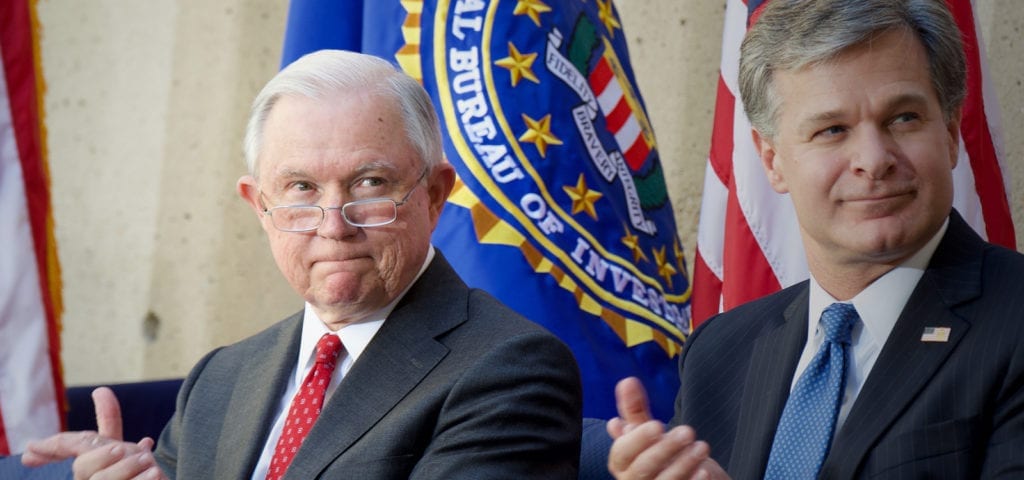During remarks at the National Sheriffs’ Association meeting in Washington, D.C. yesterday, Attorney General Jeff Sessions said the department was “trying to confirm a number of important component heads” but was being blocked by “one senator’s concerns over unrelated issues by reversing federal law on marijuana.”
That “one Senator” is Republican Colorado Sen. Corey Gardner, who has been preventing Justice Department nominees from receiving a full floor vote.
“As Attorney General, I don’t have the authority to say that something is legal if it’s not legal. We need our nominees confirmed – safety and security are important – and those of us who are gathered here know that protecting the safety and security of the American people is the mission that we share.” – Sessions remarks during Feb. 12 National Sheriffs Association meeting
According to a Denver 7 report, Gardner met with Sessions on Jan. 10 about his decision to rescind the Cole Memo, saying that the “meeting kind of went as I expected it to.”
“I shared my states’ rights position with Attorney General Sessions, and he shared his concern about the Cole Memorandum and why he rescinded it, and he also reiterated that the US attorneys will be in the position to make these determinations.” – Gardner to Denver 7
Since Sessions’ pulling of Cole Memo protections, some Trump-appointed U.S. attorneys have muddied the waters.
Massachusetts U.S. Attorney Andrew Lelling released a memo last month saying he cannot “provide assurances that certain categories of participants in the state-level marijuana trade will be immune from federal prosecution.”
Pennsylvania U.S. Attorney Davis Freed said his office “has no intention of disrupting Pennsylvania’s medical marijuana program or related financial transactions.”
Pennsylvania State Attorney Josh Shapiro said he would uphold Pennsylvania’s “very popular” medical cannabis law.
Oregon’s U.S. Attorney Billy Williams and other law enforcement officials met with industry stakeholders last week to discuss the issues with the state’s recreational cannabis system – namely overproduction and diversion – but according to a National Law Review report, “none of the U.S. Attorneys in attendance expressed an interest in cracking down on the industry as a whole.”
(H/t Leafly)
